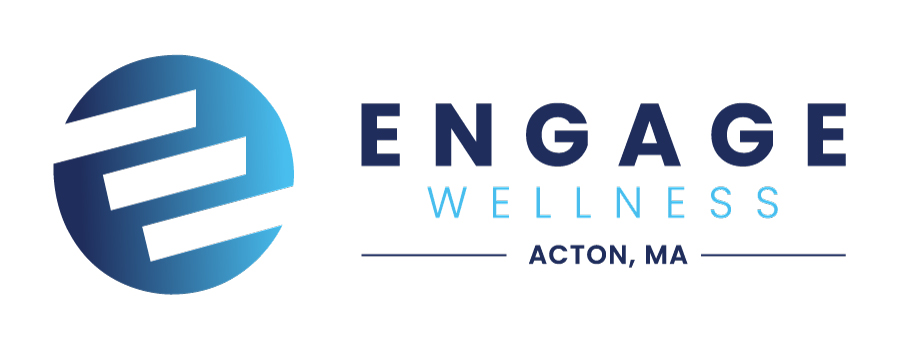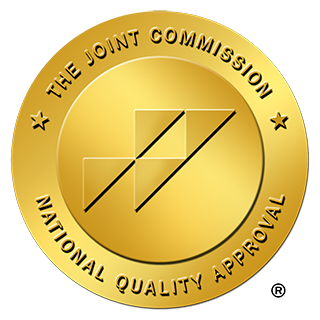Heroin Addiction Treatment at Engage Wellness Acton
Dealing with any substance use disorder is challenging and can become overwhelming without the right support. Heroin is a notoriously addictive drug with a multitude of damaging effects on both the body and the mind. It’s also one of the most fatal drugs, contributing to the ongoing opioid epidemic across Massachusetts — and the rest of the nation.
Here at Engage Wellness Acton, we know that nobody plans to be an addict. Life can be unpredictable and tricky to negotiate, leading to decisions you thought you’d never make. However, if you’re struggling with any type of substance use, you’re not alone. We offer holistic treatment for heroin addiction to clients from all walks of life, helping you back to the life you want to enjoy.
How Addictive is Heroin?
Heroin is a type of opioid, which means a drug that’s derived from the opium poppy, Papaver somniferum. Opioids may also be synthetic and merely mimic the effects of organic opioids. Fully organic opioids are also sometimes called opiates. However, heroin is semi-synthetic because it’s a chemically altered version of morphine. You may hear a medical professional refer to heroin as diacetylmorphine which is its chemical name.
Many opioids are used frequently in medicine either as painkillers or sedatives. However, heroin is not one of these. Heroin is an illegal substance, and is only ever used as a medicine in rare, end-of-life cases. In these instances, it’s usually referred to as diamorphine, and used to control intense pain.
A primary reason heroin isn’t used in general healthcare is because it is highly addictive. In palliative care, there are fewer concerns about the long-term impacts of addiction. However, for people with many years ahead of them, heroin addiction can be devastating.
Heroin is so addictive because there’s no way to take it that doesn’t almost immediately flood the brain with chemicals. Heroin is either injected directly into the bloodstream, snorted as a powder or liquid, or smoked. However when it is taken, the body experiences the effect of the drug nearly instantly.
Heroin can also be addictive after very few uses. Some substances cause you to develop an addiction over time. Your brain gradually changes to depend on the drug. However, the “hit” or “rush” from heroin is so intense that someone can very quickly crave that feeling again. Unfortunately, because your body naturally builds up a tolerance to opioids, you would need to take more or stronger heroin to get the same intense rush. This leads to users taking more than is safe which is a primary cause of fatal overdose.
The Culture Surrounding Heroin in the United States
Heroin users in the United States may start taking the drug for a number of reasons. Some simply want to experience the “high”. While heroin use isn’t exactly glamorized in the media, there’s a myth surrounding it that nothing feels as intense. This may lead people to try it simply for the experience, not realizing that they can instantly become addicted. People may also take heroin to try and overcome mental anguish, grief, or emotional distress. Some are pressured into it by peers or social expectations.
Another reason so many people need to seek heroin addiction treatment is addiction to other opioids that are no longer available or too expensive. There is a problem with painkiller addiction across America. People who live with pain are often prescribed opioids in the short term, but then they become addicted. When their prescription runs out, they may look for other sources of the drugs. “Black market” painkillers can be very expensive and heroin can, sometimes, seem like a cheaper option. Sadly, many street drugs, regardless of price, are cut with other substances like fentanyl and can cause instant overdose.
Across the states, heroin accounts for around 7% of opioid overdose fatalities. Massachusetts has around 375 heroin overdose-related deaths every year. While most of these deaths are of young men, it’s important to note that heroin addiction can happen to anyone regardless of gender, age, or race.
The overall outlook for opioid addiction has improved over the last year. For the first time in five years, fatal overdoses due to opioids like heroin dropped by 3% nationally. It could be that more people are seeking help at an earlier stage in their addiction journey, which is something the team at Engage Wellness Acton. can help you with.
Heroin Addiction Warning Signs
How do you know if you’ve become addicted to heroin? If you experience intense cravings for the drug, it’s definitely time to seek help. Other symptoms and signs common across many types of opioid addiction include:
- Itchy skin or constant scratching
- Memory problems
- Secretive behavior
- Constantly runny nose with no other explanation
- Needle marks
- Constipation
- Low mood
- Changed character
- Inability to feel pain as deeply
- Slurred speech
- Drowsiness
- Mental health problems such as depression
If you think a loved one could benefit from treatment for heroin addiction, you may have noticed that they’ve had unexplained financial troubles. They may have asked to borrow money but then haven been secretive when asked what it was for. They may also have changed the people they socialize with and the places they go. These are all signs that could indicate a problem, so if you’re able to, talk to that person and try to discover if they’re ready to seek help.
We accept most private Insurance & cash pay options
Speak to Our Admissions Team (978) 699-9786
How Heroin Impacts Your Body and Mind
Heroin is a form of morphine and affects the body in a similar way but at very intense levels. This sudden high volume of morphine in the brain causes the rapid production of dopamine, which is experienced as euphoria and a feeling of intense well-being.
Unfortunately, with repeated use, the brain finds it harder to produce regular levels of dopamine on a day-to-day basis. Because dopamine is a neurotransmitter linked to pleasure and reward, users can quickly find themselves bored or disillusioned by things they used to love. After a while, the only thing that interests them is heroin use, because their brain believes it’s the only way to get dopamine.
Repeated heroin use can also impact your:
- Kidneys
- Liver
- Immune system
- Skin
- Sex drive
- Cardiovascular system
Common results of heroin use include abscesses, arthritis, and vascular inflammation.
Heroin is unfortunately linked to other diseases, particularly if the drug is injected. Using needles to inject substances carries a number of risks. It’s not like getting an inoculation jab where everything is sterile and carefully monitored. Injecting drugs in a potentially bacteria-filled environment leads to a highly increased risk of infections such as sepsis. If heroin users decide to share needles, they also put themselves at risk from blood-borne diseases like:
- Hepatitis B
- Hepatitis C
- HIV which can lead to AIDS
Because heroin can reduce the effectiveness of your immune system, if you catch any of these diseases, you could be at risk of serious illness or death much sooner than someone without the drugs in their system. Getting help might feel like a huge step, but it’s one of the strongest things you can do — for yourself, your friends, and your family.
Heroin Addiction Treatment and Recovery with Engage Wellness Acton.
Taking that first decision to get help is never easy, but we’re here to support you every step of the way. Our team works with clients just like you every day — or your loved one, if you’re interested in getting help for someone else. We’re not interested in judging you. We only want to see you firmly on the road to recovery.
We employ a range of treatment options, from psychological sessions to help with the mental distress caused by substance use, to physical therapy in the form of sports, yoga, massage, and other disciplines proven to help body, mind, and psyche. We also work with trusted detox facilities across Massachusetts to help get you started on your recovery journey.
Holistic heroin addiction treatment at Engage Wellness Acton. isn’t just about achieving sobriety. It’s about completely changing your perspective so you can make different choices for yourself.
To find out more, please reach out to a member of our team. We’re ready and waiting to help you or a loved one on the road to overcoming heroin addiction.







